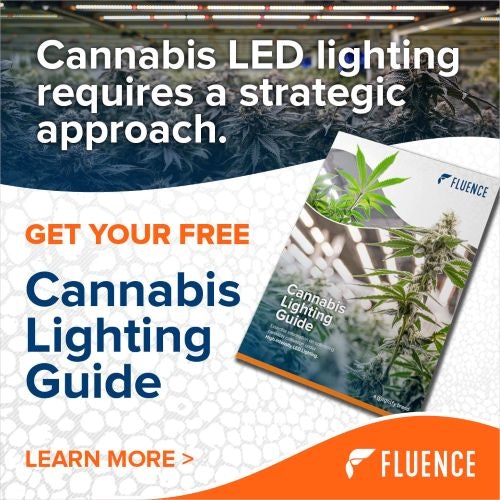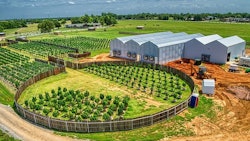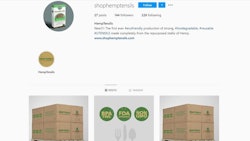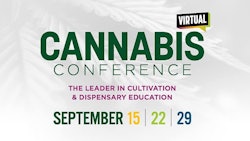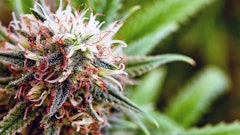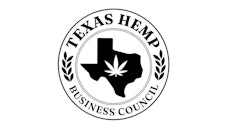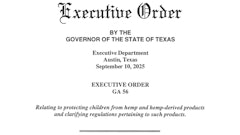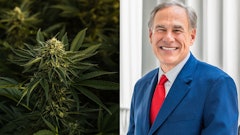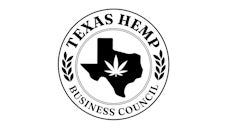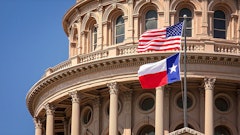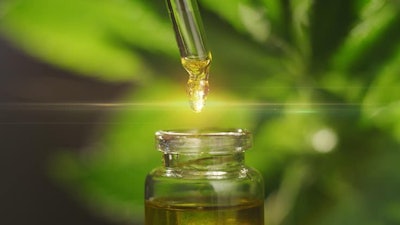
As the COVID-19 pandemic carries on, cannabidiol (CBD) product manufacturer CV Sciences has reported an adjusted net loss of $3.4 million for Q2 of 2020, down 200% from the same time in 2019—when, in a strange twist of fate, the company generated a net income of $3.4 million.
Much has changed since this time in 2019 due to the coronavirus, contributing to a 68% decrease in revenue for the company year-over-year. CV Sciences reported $5.4 million in revenue for Q2 of 2020, down from $16.9 million in Q2 of 2020.
During a recent earnings call, CEO Joseph Dowling attributed the decline in revenue to a loss of sales in the natural product retail channel as retailers closed or saw less traffic due to the pandemic. The company also saw fewer website visitors compared with last year despite a large number of CBD consumers switching to online purchasing, according to a new survey from Brightfield Group. Dowling said the company invested heavily into its digital marketing strategies to increase site visitors and is making progress, but “they all take time and money to be effective in this very crowded environment.”
Still, Dowling showed optimism during the call in the company’s long-term success as it adjusts its mission, expands its product offerings into new industries and contributes to research that could result in market stabilization.
“We are not worried about the short-term revenue and financial challenges that we and our industry currently face,” Dowling said during the call. “We are focused on balancing the uncertainty of this pandemic and ensuring that we don't do anything that slows our innovation pipeline or otherwise inhibits our ability to grow our company and be able to take advantage of this emerging market and meet the needs of our customers.”
Expanded Offerings
CV Sciences recently rolled out several new products that expand its market reach. The first is the company’s first non-CBD product called CV Acute, which is a plant-based formula meant to “support immune system and respiratory health”. It’s the company’s launch into condition-specific dietary supplements.
“The formula is supported by global medical authorities and hundreds of published scientific studies that demonstrate overall immune system defense to everyday challenges with enhanced support for respiratory health,” Dowling said. “Additionally, a World Health Organization report cited the formula's ability to be an effective therapy for respiratory and immune system challenges, and a March 2020 study, published in the International Journal of Biological Sciences, highlighted in vitro evidence demonstrating that the formula had a preventative effect on SARS-CoV-2, the virus that causes COVID-19.”
However, the company also noted in a July 29 press release that the “data is preliminary and should be interpreted conservatively.”
The company also recently released its Happy Lane CBD product line with products containing 0% tetrahydrocannabinol (THC) and priced below $20. While the line was created primarily to enter the convenience store channel, Dowling said the company has received interest from other retail channels as well.
The products weren’t a response to the novel coronavirus, as their development began before the outbreak in the U.S., Dowling added, but they’ve proven advantageous for the time.
“We believe [these] are right products for the right sales channels at the right time and for the right price,” Dowling said.
Breakthroughs With the FDA
A lack of CBD regulations from the U.S. Food and Drug Administration has been a common pain point for CBD manufacturers. But Dowling showed optimism that regulations are coming sooner rather than later—specifically in late 2020 or early 2021.
He had several reasons for his prediction. First, more research has emerged answering the FDA’s call for data on CBD safety, including two studies from CV Sciences that were recently published in the Journal of Dietary Supplements. The first study observed the effects of hemp extract on “markers of wellness, stress, resilience, recovery and clinical biomarkers of safety in overweight but otherwise healthy subjects” with the company’s PlusCBD products. Dowling said participants in the study had improved HDL cholesterol as well as stress response, life pleasure, wellness and sleep; meanwhile, the subjects showed no adverse effects on the liver (which the FDA has expressed concern over) or any other “biomarker of health.”
The second study observed the health of subjects who had used PlusCBD products for two years and also found no signs of liver toxicity.
Dowling said these studies, along with others, appear to reveal a pattern that lower amounts of CBD are generally safe, while products with higher levels may result in elevated liver enzymes and potential drug interactions. He added that this pattern has also been observed for substances like caffeine, sodium and vitamins.
Dowling is also hopeful FDA regulations are coming soon because a new commissioner, Dr. Stephen M. Hahn, was appointed to the agency at the end of 2019. Dowling said the FDA’s tone has changed since then.
“By February 2020, FDA’s tone shifted toward an acknowledgement that FDA needs to find a path forward that will balance consumer access and consumer safety,” Dowling noted. “Since Dr. Hahn took over, the agency has been notably active with enforcement against bad actors while it has shown significant signs of progress, including the recent submission of a CBD enforcement policy to the executive branch for review. This is work that was prioritized despite the challenges of COVID-19.”
Dowling said he’s also been coordinating with peers at the federal level on crafting a bill that would “fix the regulatory hurdles that prohibit the sale of CBD” due to its status as an FDA-approved drug in the form of Epidiolex. (Substances that are drugs or active pharmaceutical ingredients are not currently allowed in the other FDA-regulated categories.)
“CV Sciences has advocated that we can protect the pharmaceutical industry and ensure that incentives to invest in the required science to develop prescription therapeutics is protected while allowing the supplement industry to operate in a separate lane using hemp-derived CBD,” Dowling said. “This is how it works for other natural products like fish oil. And we predict the same will apply to hemp extracts.”
Finally, Dowling is anticipating change soon because he’s seen change in other countries. Regulatory frameworks surrounding CBD have emerged in places like Australia and the U.K., and Dowling is hopeful this signals the safety of regulating the cannabinoid to the FDA.
When those regulations do come, Dowling showed confidence that CV Sciences would be ready.
“You better get ready for massive attrition from the fly-by-night companies,” Dowling said about the FDA releasing regulations. “Companies that have not prepared for FDA regulation will not be able to compete effectively. But you will hear a sigh of relief from responsible companies in the industry who will be able to operate on a level playing field.”

